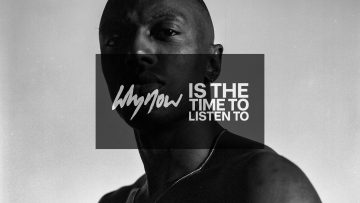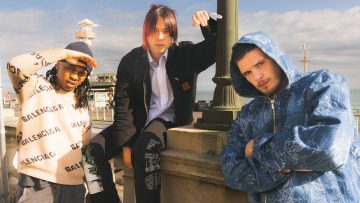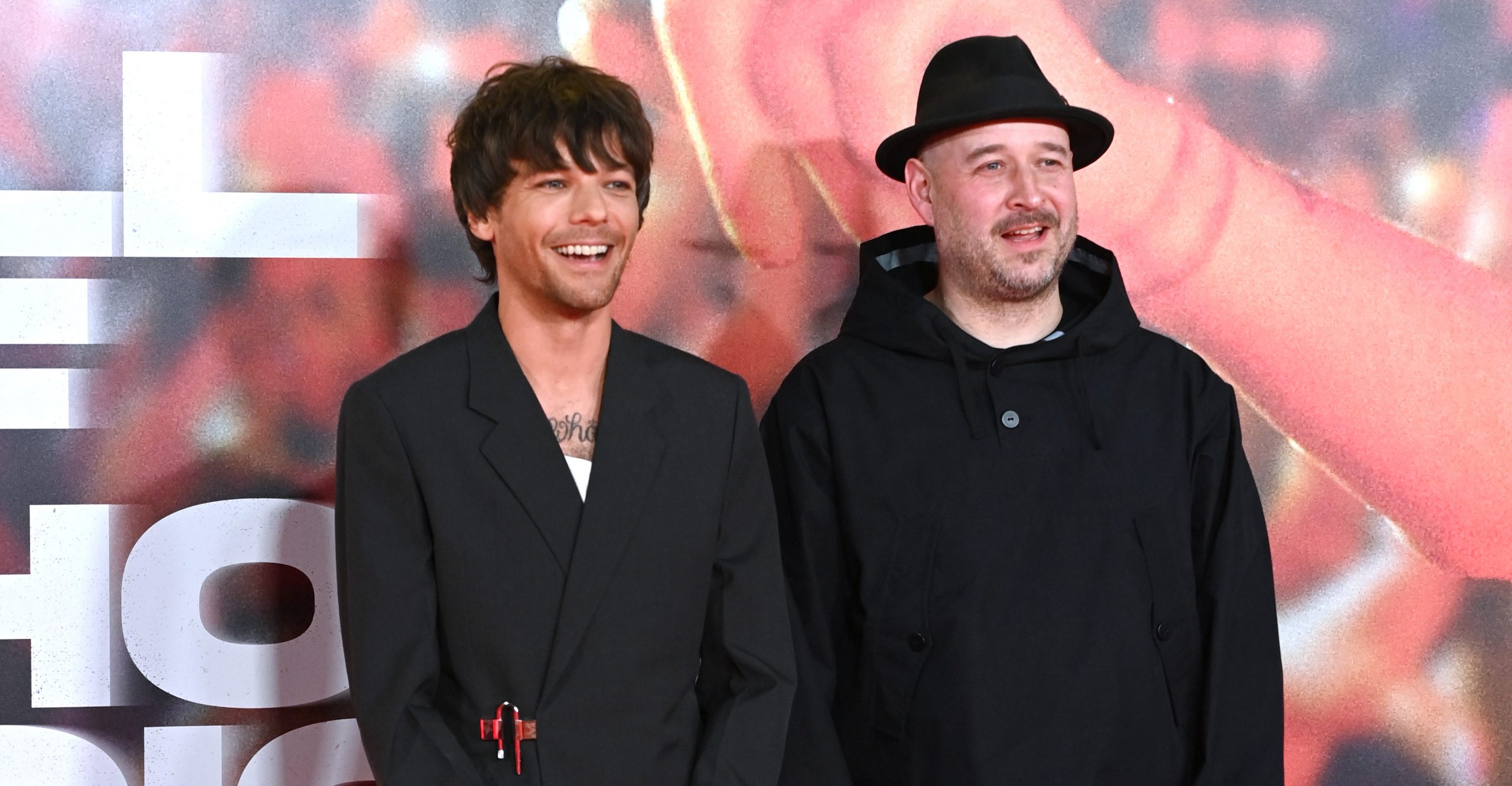
The former One Direction star hasn’t had it all as plain sailing as many would assume since the manufactured post- X Factor days. Following the deaths of both his mother and sister, Tomlinson has had to overcome personal plight, as he searches for purpose in his solo career and life on tour. It’s all there to see in All Of Those Voices – and we spoke to Lightening to find out how the film all came together…
Congratulations on the new film – I found it quite moving, surprisingly so…
It’s interesting you say that. I think in its entirety the film will be surprising to a lot of people: the honesty and Louis’ journey, and how big it’s actually become. Sometimes I find among the press, [Louis] doesn’t get as much credit as say Niall does – and obviously Harry. But this film is something where I think people will think, ‘Wow’, and realise [he should].
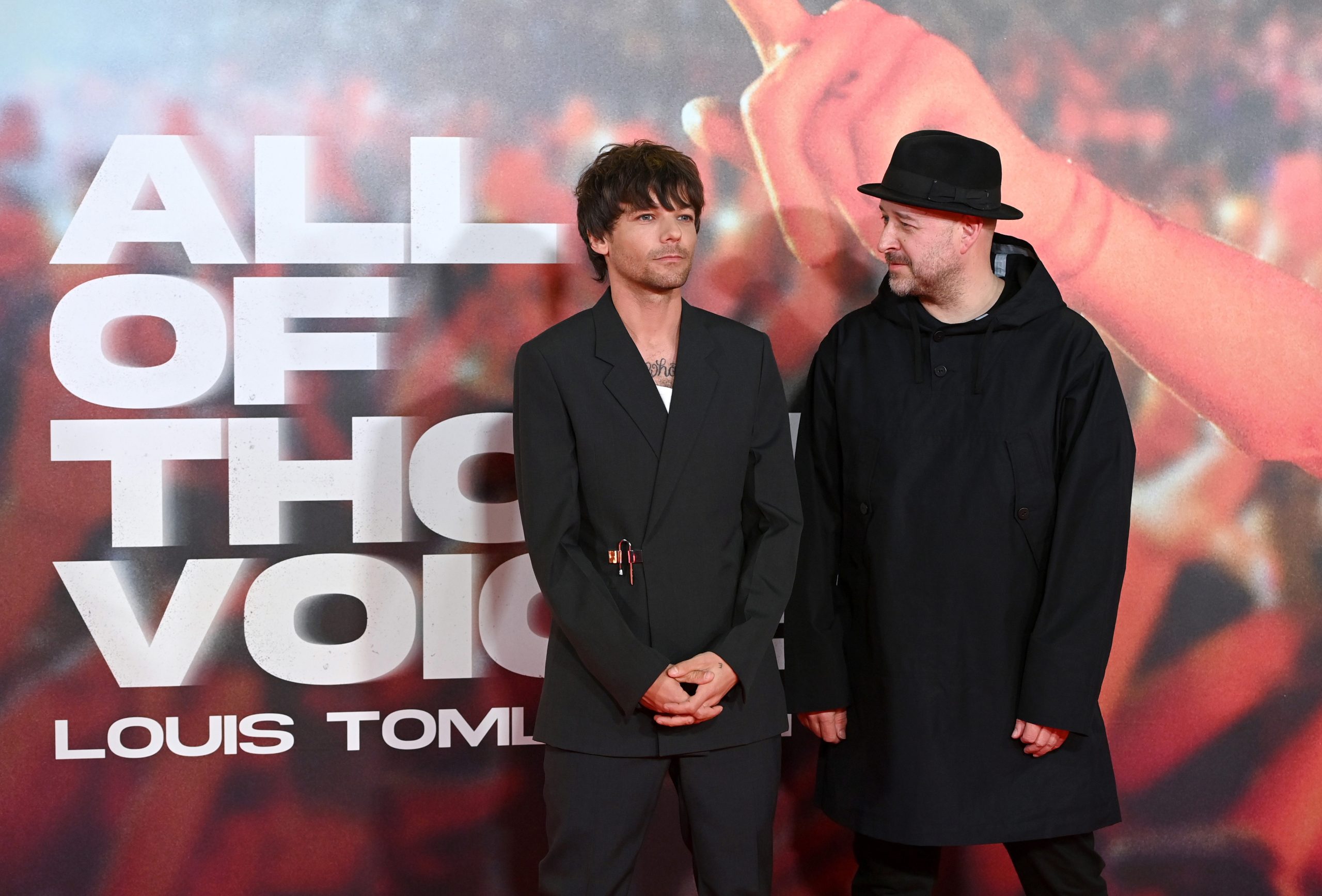
Definitely, it’s a very up-close-and-personal film. When did you first meet Louis and when did the idea for making a documentary about him originate?
I made the Liam Gallagher film, As It Was. Louis came to the premiere of that. Then his people got in touch and asked if I’d be interested in making some music videos for him. Obviously, I knew the history of [One Direction] and read certain things about what he’d been through personally. So I met him, and immediately liked him. There was something about him: he wasn’t just nice, but down-to-earth.
In the same way Liam Gallagher isn’t showbiz, Louis is the same – he’s not interested in showbiz mates, he just wants to be a down-to-earth lad. It’s a similar thing to me with my Northern roots. I just got to know him, and the more we talked, there’s a real depth to him. He’s a lot older than his years and a lot wiser than many given him credit for.
Him being a deep thinker comes across clearly in the documentary – especially the chats he has with his vocal coach, Helene Horylck…
And his honesty as well. Honesty and authenticity is what I try to capture when I make a film; at the root of everything I do, it becomes just a human story. It’s about finding something I like about that person, and knowing there’s a journey to go on, and that I can make the audience feel the same way I feel about him. I’ve worked with everyone over the years. I’ve been with Paul McCartney for about 15 years and documented him and learnt a lot from doing that, but it’s always just been me and a camera.
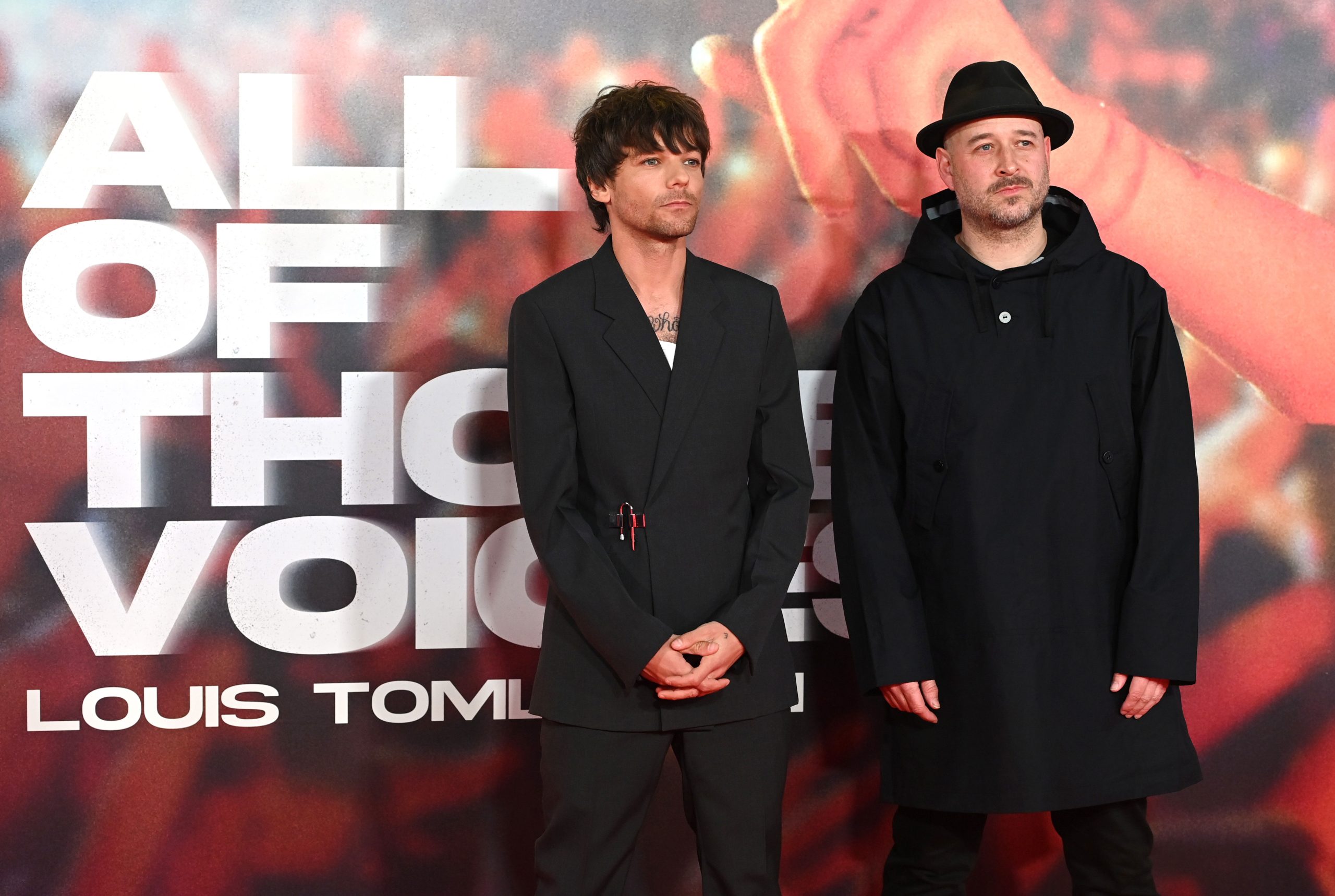
I always thought, ‘How are people going to take me seriously, if it’s just me and a camera?’ So I wanted to go and be the big director on set, with 50 people. Then I realised I lost that pureness of just you, a camera and a person. I’ve realised that’s now become my niche as such. You can see the similarities with [As It Was] and this film, where you’re right with the person.
With that in mind, did you have an initial vision about how you wanted to go about this film or did you just let the cameras roll, as it were? Because there’s this incredible narrative arc that takes place, from an artist a bit unsure of himself to a huge headline world tour…
It goes back to when I met him: I thought there’s so much more to this lad than we’re seeing. And I think being in a band like One Direction, as much as it gives you so many opportunities, it’s also a heavy load to carry, based on what you’re expected to deliver.
Especially for Louis, because of the music he’s into, and who he is, it’s difficult for him because he’s coming out and doing stuff that’s a bit more indie – it’s almost too indie for pop stations, and not indie enough for indie. I felt that the next album [Faith In The Future], was going to one where he’d do something really interesting. So it was his personality, what he was about, his opportunity and where he could go. But then it all made sense when I saw him do a gig with his audience. I thought I could finally make this film because I’d never seen an audience and an artist be on the same level like that.
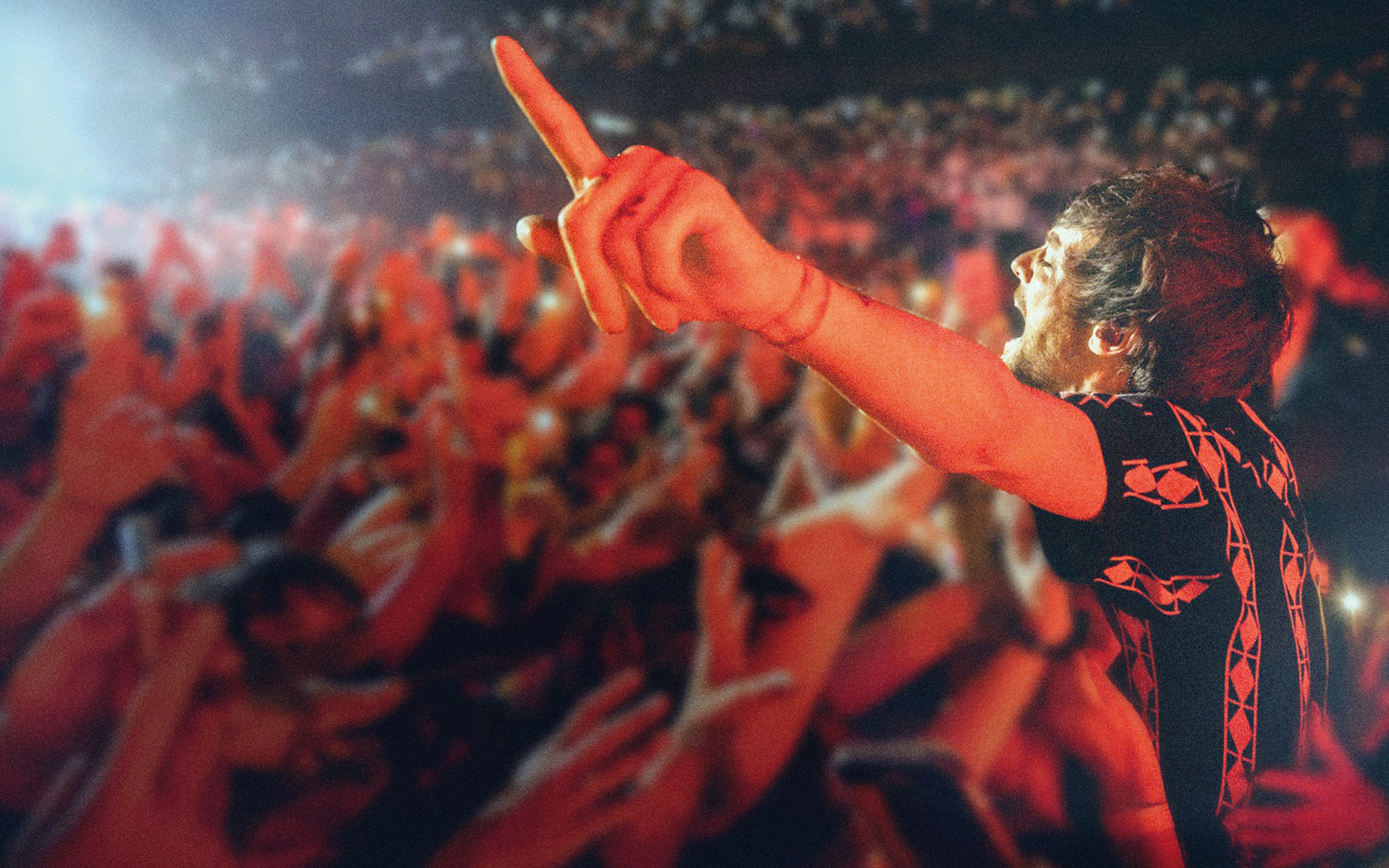
Originally, we were meant to shoot the film, and it was all about getting on tour. But then because COVID happened, it added a whole other depth to the film. And I think his journey through that, doing those two shows, having a taste of it as a solo artist, and then stepping away from it, I think that made him actually realise his opportunity.
You mentioned One Direction, and obviously you can’t really tell Louis’ story without it, but the film doesn’t really dwell on the band or his time in it. Was that something you were conscious of: to really place emphasis on Louis as a solo artist?
There was so much of a story to tell of after One Direction. In some ways with One Direction, you know the story: they were put together, they brought their own personality, and it went massive. There’s not much more to it. I wanted to get across the whole story about him on that first single when he’s not actually on the single. And then for him to tell the story on the second single, wanting to get on it and going over it for hours with a producer, then he hears it and it’s Harry singing the line.
It must have been crushing: all of this success, everyone’s saying you’re famous, but you’re thinking, ‘What’s my role in this?’ For him to then go and want to be involved in the songwriting was so clever – if he’s not going to sing the line, if he wrote the line that’s almost better. That for me was the most important thing about One Direction; it was him finding his feet in it and then feeling validated with it.
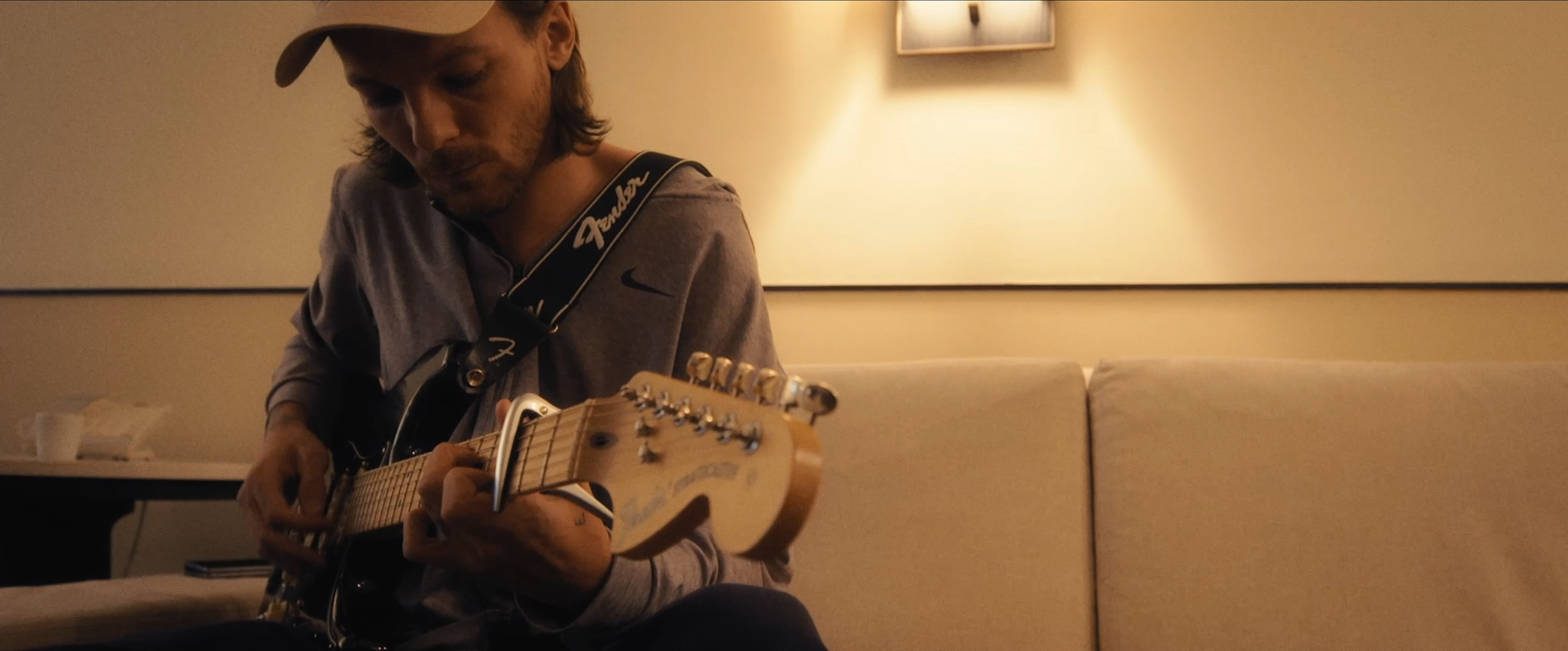
There are some very difficult moments in Louis’ life too – chiefly the deaths of his mother and sister. What do you think Louis has in his character to overcome such immense challenges, especially with such public attention?
I think it’s his mum. I never got to meet her, but I felt a heavy responsibility in telling the story because obviously it’s someone’s life and it’s a sensitive scenario. At the same time, it could be something that could be milked or done in a certain way. It needed to be told, but I didn’t think it needed to be lingered on. There’s a line that [Louis’] grandma says: “we pride ourselves on being decent people”. And you can see that in Louis, he’s ahead of his years, which is what his mum gave him.
What were some of the biggest challenges you had in making this documentary?
Normally it would be like, ‘Right, we’ve got ten people coming to do this shoot, we’ve got two weeks and within that time we need X, Y and Z.’ Whereas, I’ll want to shoot for longer and it will organically happen. I think sometimes that can be tough because it all goes on in my head. A lot of the time we’re just hanging out, and it happens without [the artist] even realising. But I think it can be tougher on a bigger scale because you have to keep a lot of people happy.
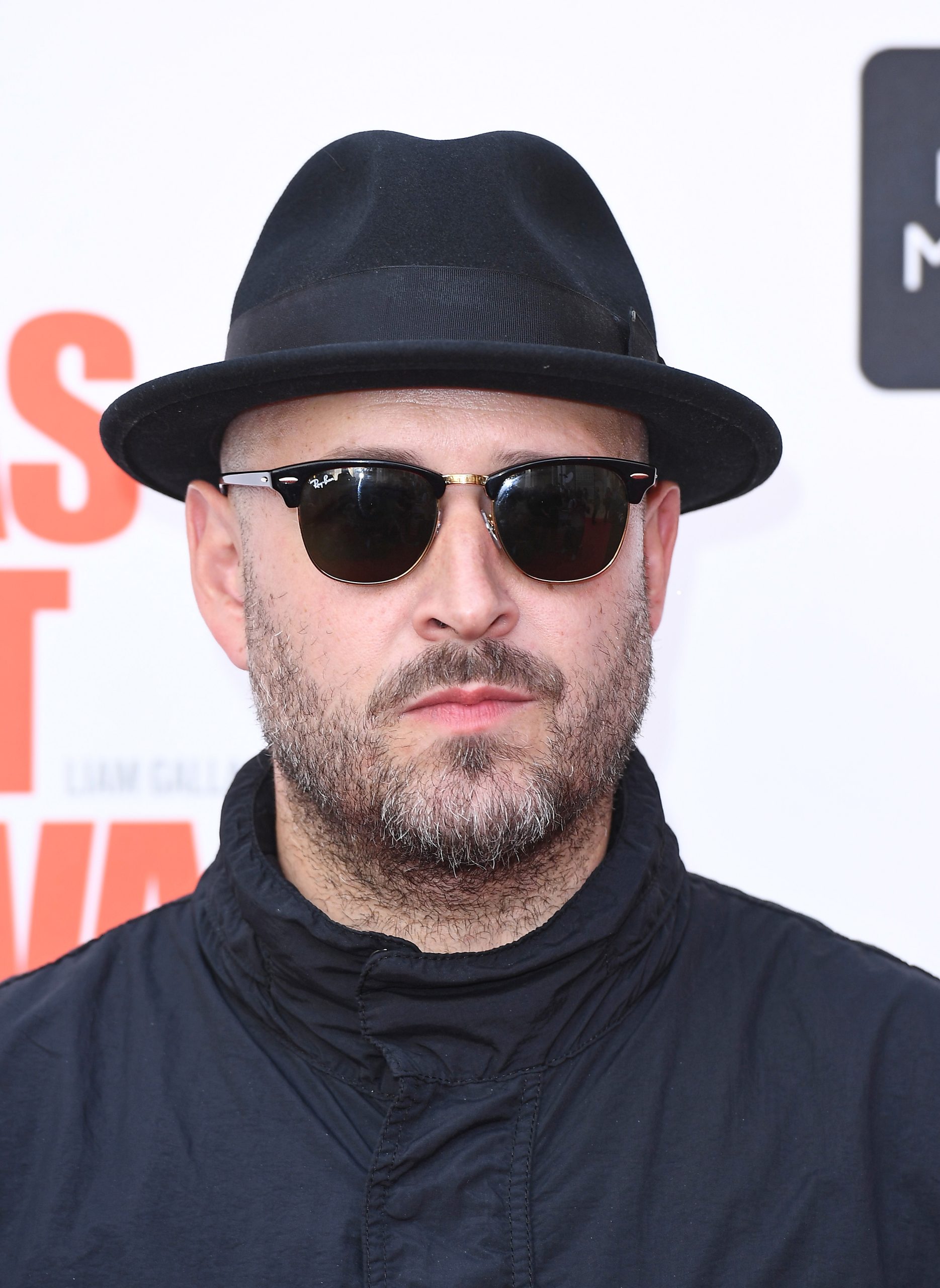
Louis does come across exceptionally open in the film. Did that come immediately to him or did you have to build a rapport with him to get there? And how did you go about establishing that?
I’ve always just got on with people. There’re so many – I won’t say the word – idiots in the industry. There’s lots of egos and self-inflated people. And, for myself, I’ve always very much got on with the artist, it’s a very organic process. People just seem to let me in and trust me. Once that trust is established, nothing is off the table, we can talk about everything.
The only thing with Louis, because it was so personal, is once we got to the end [of filming], if there was anything that wasn’t right, or he didn’t feel comfortable, we would at least talk it through. But there wasn’t anything, I was surprised. The one thing I was worried about when he first saw the cut of it was how he would feel about all the personal stuff because I was so aware of how I wanted it to be. But by the time he saw it, there were actually no real comments about the personal stuff.
The story of Louis being a young dad is quite powerful too. It must have been quite an emotional project to film and create for you personally, to be in and amongst that…
I lost my mum as well, not too long before we started filming, so there was a sense of empathy from myself because of what Louis had been through. But I never felt sorry for him. I think in the past, it felt as though a lot of people had felt sorry for him, or they hadn’t necessarily looked at how good he is. That’s why, in some ways, he hasn’t talked about this stuff in the past, and why it’s good it’s in the film, because he’s said it all. He doesn’t need to go into too much detail with it.
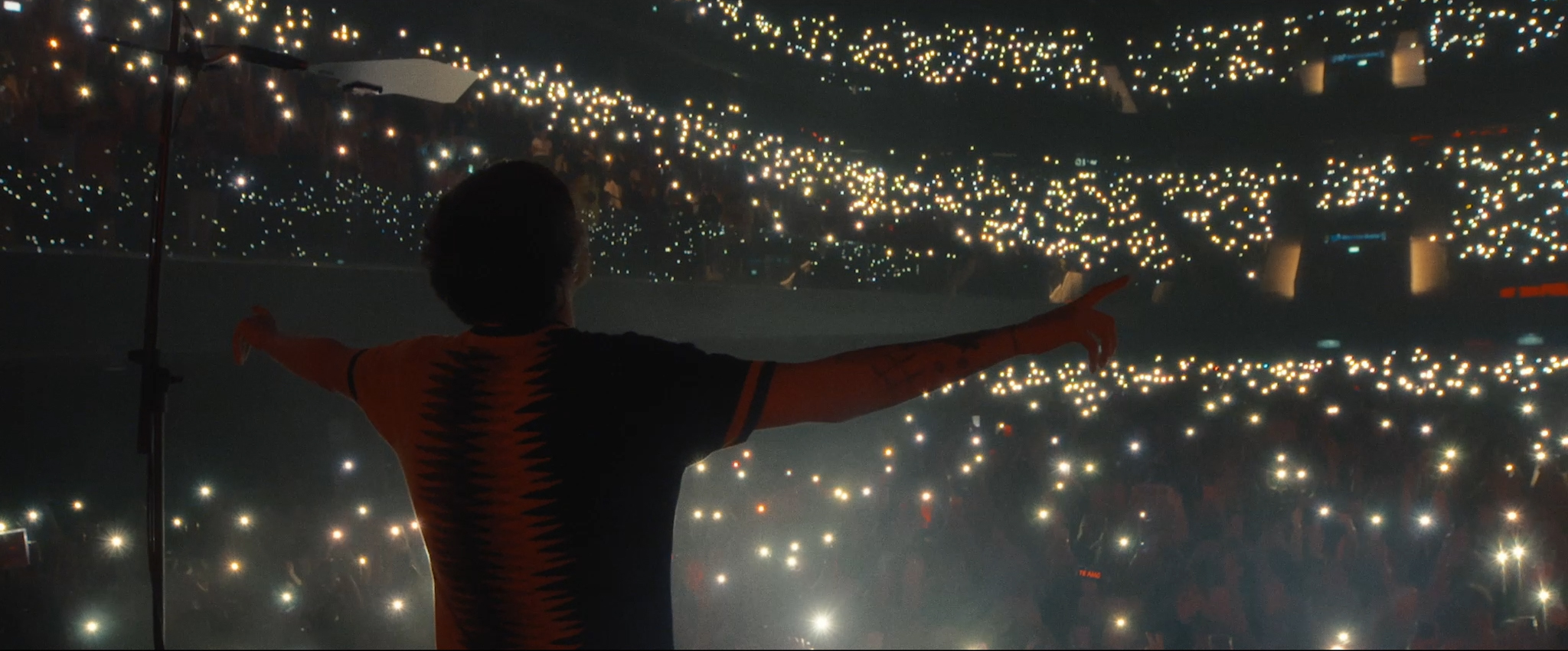
Did that narrative arc that takes place surprise you as it developed, and you were making the film?
Yeah, you’re only as good as your subject, in many respects. With Louis, one, you’ve got the story; two, the arc of it; and three, because he’s grown up with cameras because of One Direction, is how comfortable he is around it. I think if you try and manipulate something, try and hold something back, I the viewer can tell – I can tell, anyway.
And then if you think about the fact that with the first tour, because he didn’t want to put his shop out and go and do massive shows from beginning, but wanted to feel it out, the first tour was smaller shows. But because of it being canceled two shows in, then he did livestream a year later and he’s in the Guinness Book of Records – it was the best thing. By the time he finally gets to go on tour, the need and want to see him was even greater.
We started the tour in America, and kept it in the theatre size, just to get a feel for it all. By the time we got to Europe, he then upgraded to arenas. And then we go to South America and he’s doing numerous nights in arenas. So, in some respects, you have the story of what you’d do over two or three tours, all happening at once.
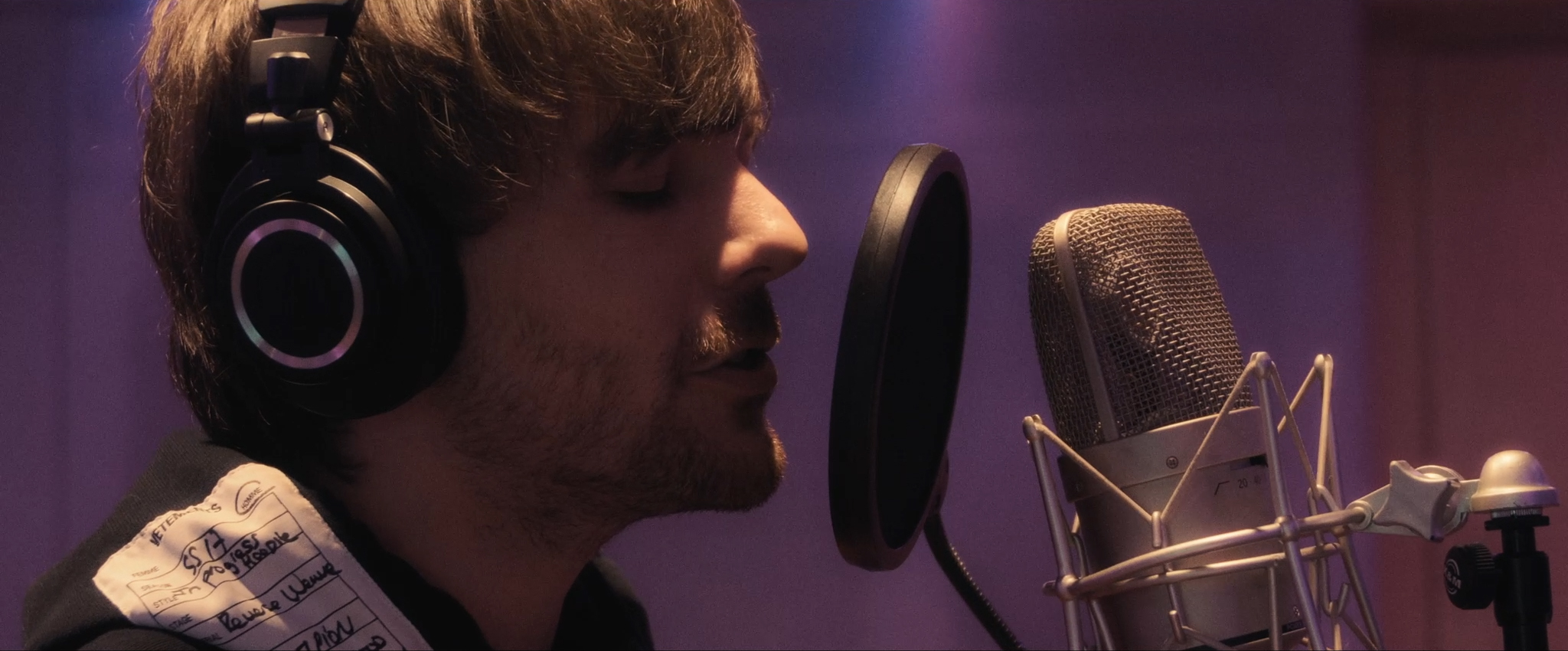
Out of all of Louis’ lyrics, why did you choose All Of Those Voices as the title?
We thought “all of those voices” works on many levels. It’s “all of those voices” in his head, all of the voices that have said ‘you can’t do it’, or ‘you’re not good enough’. It’s also “all of those voices” of the audience in the crowds who’ve lifted him up. We took that line because it had so many meanings.
Speaking of all the people who put him down and those who’ve lifted him up, how far do you think Louis can go now?
Again, that’s a funny one. He’s already at a point that most artists don’t even get to. Personally I feel that what he can do is continue to champion indie bands, taking them on tour, and hopefully people can leave the snobbery just because he was in a pop band.
I think he’s just at the beginning, though, really – now he’s got the confidence to do what he wants. I mean, his shows are great man. I’ve showed the film to younger people; my assistant director, for one, was a big One Direction fan as a kid, and she said, “I just didn’t realise he was doing this, I want a ticket to go see that show.”
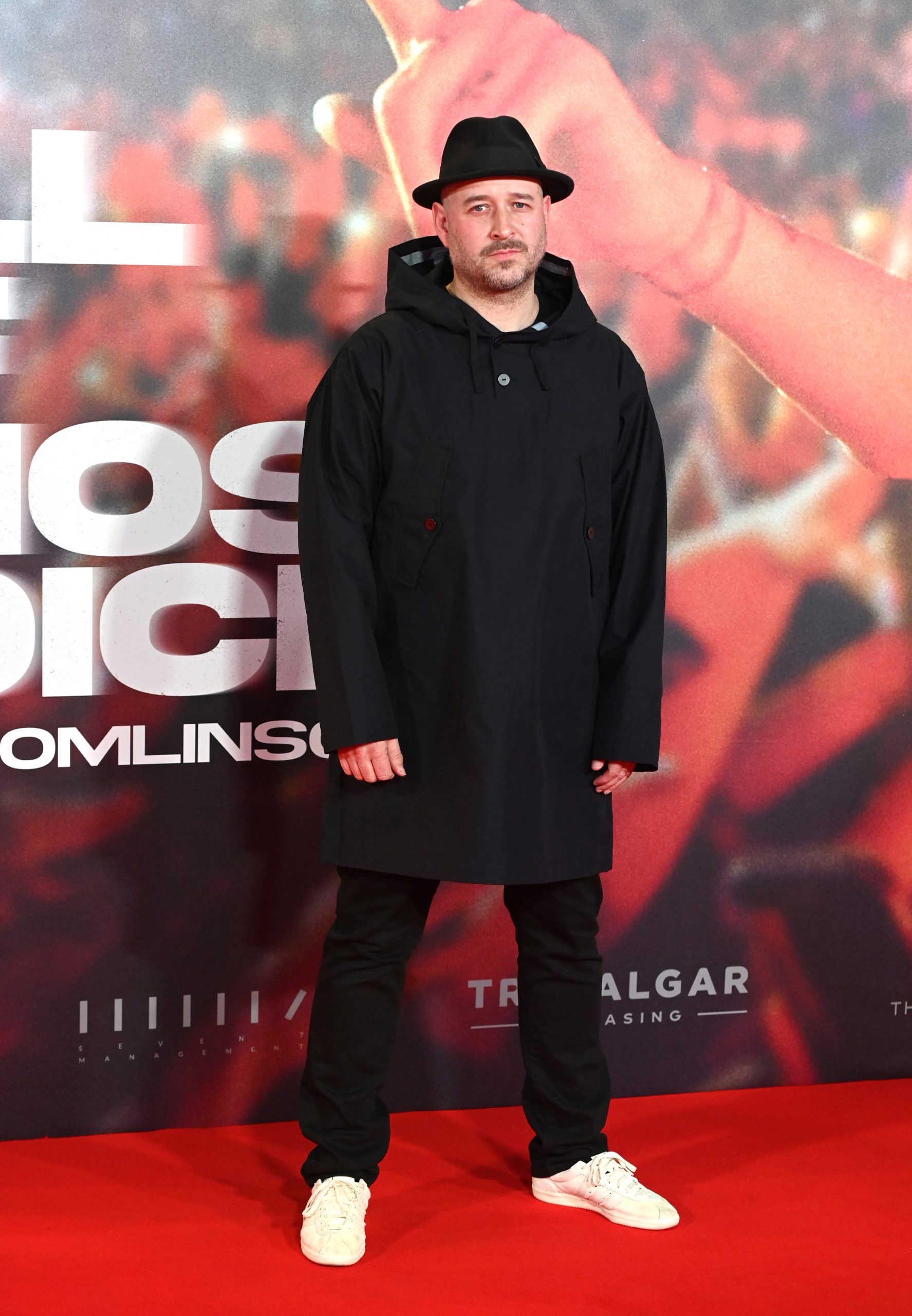
Do you think this is a film for the fans, or were you making this for people beyond that base?
It was really important to me to make a human story. Hopefully the fans will love it, but it was really important to make a film that if someone who isn’t a big fan put it on, they’d think, ‘Wow, he’s a cool guy’. I’ve got a lot of respect for Louis, and I value him dearly as a friend as well. But at the same time, it’s really important to me it’s not a purely promotional piece, or anything that’s made to further someone’s career, like a lot of these documentaries are. I think it would be hard to critique what we’ve done because he’s just being honest.
There are so many fans who come up to Louis at signings and say, ‘You’ve saved my life’ and ‘thank you’; because he’s had success and been very lucky, but also some of the stuff he’s been through is quite touching – at the same time, like he says [in the film] that could happen to anybody. I feel that for him to show that he’s been through it, and be honest that it’s been tough for him, but that he’s trying to get through it and be positive, is such a strong message for people.
All Of Those Voices, now available in cinemas worldwide for a limited time only.

